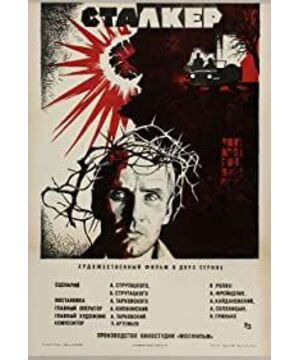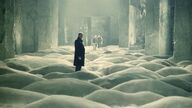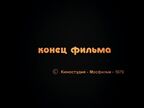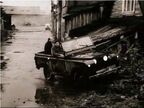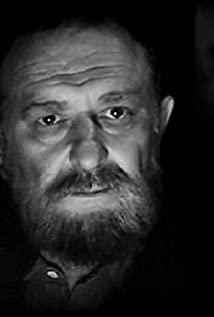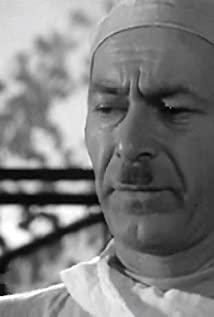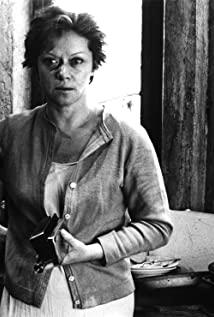"Stalker" probably tells a story: a meteorite landed in an unnamed small town in Russia, creating a large area of unmanned area (The Zone) centered on the point of the fall, and legend has it that there is a room in this area (The Room), the person who finds and enters the room can realize any wish. This restricted area was blocked by the authorities with barbed wire and sentry. If you want to bypass the guards, avoid traps, and finally find the room, you must rely on the help of a Stalker who is familiar with the restricted area. In the film, a writer and a scientist, driven by their respective goals, hire the protagonist to find a room together. What can be expected by convention is that after they enter the area, everything in the area becomes treacherous and paradoxical.
Although the outline seems to have some supernatural qualities in the film, any contemporary "science fiction" and "suspense" elements are almost non-existent in Tarkovsky's films. The tower’s resistance to the narrative structure and stunt performance can be clearly seen. There is no Mérieux-style fascination or love for statues in "Stalker": the restricted area looks like an industrial-style demolition ruin. , The entire apparent world is so simple that no trace of the "future" can be seen. The stalker’s bedroom only had a double bed and a coffee table, and whenever the train passed by, the whole room rumbling. There is no temptation of fantasy. Ta is trying to describe an unmagical miracle.
"I have been persistently trying to convince people that as a medium of art, film has its own possibility of being equivalent to prose. I want to prove that film can observe life with its coherence, without bluntly or blatantly interfering. Because that's what I know about the true poetic nature of movies."
This is what the tower said in the autobiography "Sculpture Time". "Stalker" is of course not prose, prose has a sharp and obscure that is limited by its format. The film language of the tower is a huge iceberg. Due to its superficial limitation, it is difficult for viewers to deliberate, or it is too easy to deliberate about things under the water. Stalkers act as guides and lead writers and scientists into the forbidden area. Although there are no special effects, the forbidden area itself has a sense of "space" alienation. There are no human beings, and there are no human creations, only the relics of human creations. The stalker wandered in the restricted area with a high degree of religious piety, guarded against all visions that had never occurred, and warned the two employers: I know the room is only a few steps away from us, and you can all see it. Just walk a few steps forward-but remember that in the penalty area, the shorter the distance to the target, the more dangerous you may encounter.
The writer who had been impatient with the ordinary things around him immediately expressed his contempt for such unrealistic claims. He left the other two behind, ignored the warning from the guide, and walked a few steps toward the room-suddenly a voice stopped him, and the writer felt a fear of the unknown coming from deep in his heart-so he left. When I came back, I saw the eyes of the other two "I didn't call you". When I read this paragraph, my mind suddenly jumped to the myth of Cthulhu and a bunch of other gods and gods. As the industrial symbols of the two disciplines of "humanities" and "nature," writers and scientists ridicule the stalker's obsessive set of forbidden zone rituals, and at the same time they tremble when they suddenly realize that they are inexperienced in the place.
Why can't it "direct" to the room? Why the shorter the path to the answer, the more dangerous? The myth of Cthulhu has an answer: blind exploration of the unknown world will lead to disastrous consequences. Human beings who have not undergone any discipline will often fall into madness when they see the truth of the world for the first time because of their own lack of capacity. There is also an example in Buddhism. It is the method of the Pure Land School to recite "Amitabha Buddha" all day long. The Pure Land School believes that people cannot go to the Pure Land alone, but through the other power of the "Amitabha's original wish", everyone can die by reciting the Buddha; and In Zen Buddhism, it aspires to initiate the mind with the heart and pay attention to the realization of the Buddha through insight. The Pure Land Method is an ox cart, which is slow but very safe. Zen is to fly an airplane, which brings unpredictable mental dangers very quickly at the same time. This is also the way to the room. The room is Tarkovsky’s house of everything. No one knows what "realize any wish" means—absolute knowledge, or absolute emptiness, but the tower’s mockery of modern academic evidence and experience is ready to come out: people It is difficult to draw true conclusions about any phenomenon, and people are "ignorant" even about "ignorance" itself.
Only the stalker is an individual beyond the empirical society. The stalker hopes to discover the fate of self and regain his beliefs, and regard the restricted area and room as the only pure land that can hold hope when humans collapse. Virtue is the only way. So at the end of the gate, at the meat grinder in the sewer, he cried and hoped that scientists and writers would examine himself more, "think about the past, people will become kind", so that they can gain a certain degree of virtue so as not to be the final answer. Destroyed.
And when the three people experienced suspicion, frame-up and fear and reached the end, the stalker told the story of the previous generation of stalker "porcupine": the younger brother of the porcupine died in the sewer of the restricted area, and the porcupine came to the end. He wanted to fulfill his wish to resurrect his younger brother, but found that the room only gave him endless wealth. "The room will not give you what you need, it will only give you what you want." The final answer separates people's desires and visions. The writer finds that he only wants to escape from the hypocritical world but dare not face his own desires, and the scientist Came here just to destroy the final place that reason cannot explain. When the scientist took out the bomb, the writer jokingly said to the stalker, "Our inventor has brought out the instrument to detect human souls!"
But it was just a bomb, a 20,000-ton bomb stolen from the laboratory by a desperate scientist. Science has the method to destroy the soul, but the instrument to detect the soul does not exist. But science has always tried to use empirical reason to detect the soul. In Kijeslovsky’s Ten Commandments, the father of a little boy uses a computer to calculate the thickness of the ice every day to judge whether the little boy can walk on it. On the day when the thickness he calculated was enough, the little boy walked onto the ice, but fell into the water with a click and drowned. The reason is that a homeless man grilled fire beside the ice surface, which caused the thickness of the ice surface to deviate from the calculation result. Tramps often appear in every episode of "The Ten Commandments", overlooking the world like God, and before the computer, God is furious.
The three people finally stayed before the final answer and refused to make an inch. The long search was attributed to the torture of the soul. In an age without faith, stalkers despair of the human nature they see. Since the Age of Enlightenment, the tragedy of Oedipus has been repeatedly mentioned by mankind. In a broad sense, he declared that God is dead and his father was legal, and he began to reconstruct a new belief system. But is spiritual freedom really brought by the new system? Tarkovsky himself said, "The writer explicitly denied the existence of the room. He said: "It is very likely that it does not exist at all" and asked the professor: "Who told you that it exists? The scientist pointed to the stalker. The stalker is the only witness of the existence of the "room", the only person who has faith. All the information about the "room" comes from him, so it is easy to imagine that he made up everything. For him , The worse thing is not that they are afraid, but that they don't believe it, but that there is no faith in the world."
People who doubted the mystery gradually became the protector of the mystery in nature.
It’s worth mentioning that Tarkovsky arranged for the three of them a black dog to follow them on the path of virtue testing. The dog followed them when the three entered the restricted area, and eventually followed the stalker back home. Dogs as animals are completely safe in the rules of the restricted zone. What a wonderful allegory.
Those who are looking for the answer go to the restricted area to find the answer out of their own wishes, and out of their own worries before the final gate, they return to the tavern at the beginning, a barren starting point. Back to the beginning of the film, the writer expressed his dissatisfaction with the boring life when chatting with the sports car girl outside the pub, "Life is just an equilateral triangle, A=B=C", the equilateral triangle is so correct, but we are about triangles The experience itself is not enough to constitute truth; the writer also said, "The declaration makes me tired." What declaration? Are they, the announcers, really doing the right thing? If it is correct and boring, or more terrifying, is it both wrong and boring?
The long end (because of the epic-level slow-moving shots of the tower, I thought it would end for N times in a row) in the daughter of the stalker. Innocent, completely inexperienced child, contributed the only supernatural lens in this "science fiction" feature film with almost no supernatural phenomena: the girl uses her eyes to drive three cups on the table, and finally one of the cups Driven by the power of thought, he fell to the ground, and the rosy red picture disappeared into the broken sound of glass.
The theater is in the Middle Art Park. When the movie started, I went to the Middle Art Museum, where a series of art works by children with autism were exhibited. After watching these things and then going to the movies, there was no trace of sleepiness in the whole process—these things are just a sad closed loop just like Tower's movies. But sadness itself is not desperate. In Tarkovsky's words, it is a kind of "mental purification."
I think that the moment the stalker’s nerdy daughter gains supernatural power is the beginning of the true childhood of mankind in that world.
View more about Stalker reviews


